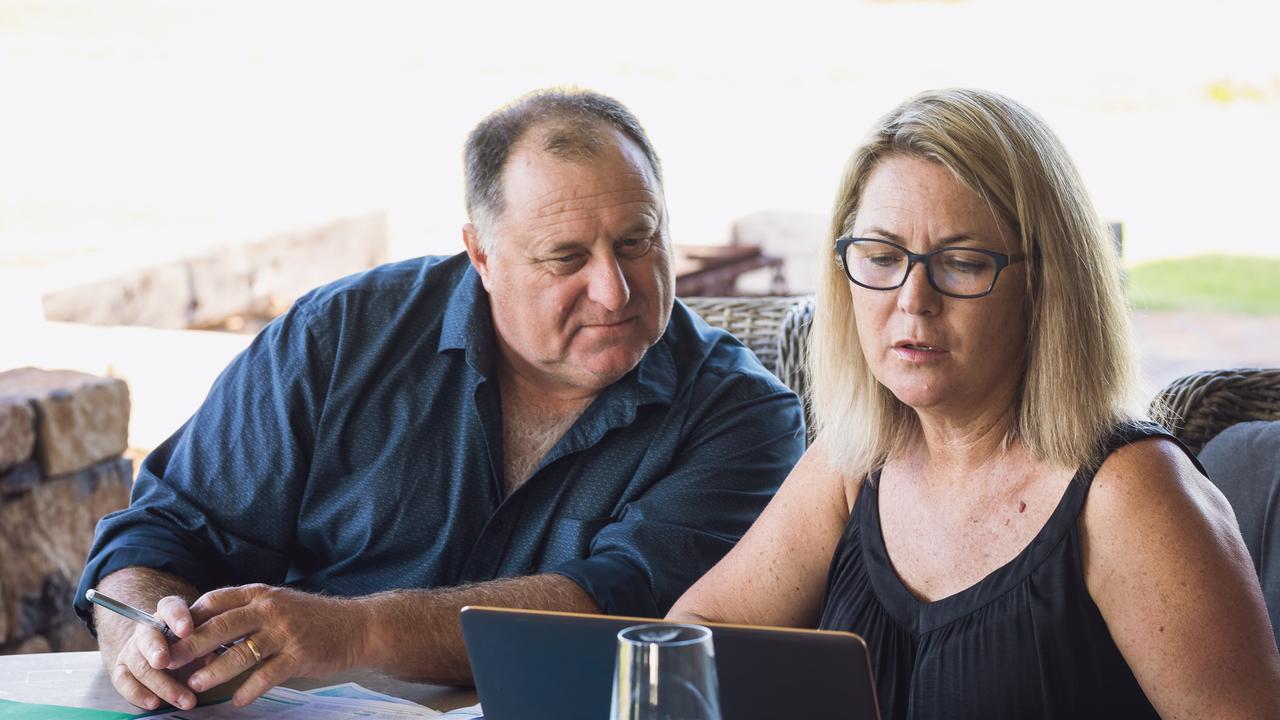Divide between Australia’s rich and poor widens
A new report shows some households sit on the precipice of financial ruin, with many having dangerously low cash reserves.
It’s no secret that Australia is one of the most expensive places to live.
And given the ongoing impact of the pandemic it may come as no surprise that living costs remain one of the main sources of anxiety for families across the country.
A stark new survey by ME Bank shows that while the impact of Covid remains one of the ‘biggest worries’ for households (28 per cent), the ‘cost of necessities’ (37 per cent) and ‘the global economy’ (36 per cent) are even larger concerns.
The biannual Household Financial Comfort Report, which quantifies how comfortable Australian households feel about their financial situation, also shows the wealth gap is widening.
While some Australians, including well-off retirees, reported marked improvements in their perceived financial wellbeing in the Covid economy other groups, including single parents and casual workers, continued to bear the brunt of the pandemic and industry downturns.
The bank’s financial comfort metric – based on factors including net wealth, cost of living and confidence in the ability to withstand a financial emergency – crept up by two per cent since June, rising to 5.89 out of 10 – a full five per cent above pre-pandemic levels.
RELATED: New fee Aussies are going to hate
BOOMERS FARE BEST
High-income households reported feeling the best.
“Across incomes, households with high incomes (>$100,000 per annum) reported to be the least impacted by the pandemic,” the report states, “with slightly more citing to be ‘better off’ (29 per cent) than ‘worse off’ (23 per cent) or a net 6 per cent”.
That growth was also aided by record-low interest rates, a recovering stock market, and a range of fiscal policies – including substantial and extended government income payments – which benefited those who were already well off, said ME Bank’s Consulting Economist, Mr Jeff Oughton.
“The pandemic has triggered many households to proactively reorganise their finances, helping to bolster their financial resilience through the pandemic and the uneven economic recovery underway.
“Households have increased cash savings, cut overspending, paid down debts, and withdrawn retirement savings to improve their ability to handle the emergency,” said Mr Oughton.

LOW INCOME HOUSEHOLDS ON ‘PRECIPICE OF PAIN’
After the government began to taper support during the past six months, low-income households (less than $40,000 per annum) and households with low savings (less than $1,000) reported big falls in financial comfort (down 7 per cent and 14 per cent to 4.79 and 3.61, respectively). Many of these households (including many single parents) have found it necessary to access their cash savings and make another withdrawal from their superannuation during the second half of the year.
ME’s report also shows around one in five households report having less than $1,000 in savings (less than the current Jobseeker fortnightly payment). Eight per cent of respondents said they held less than $100 in reserve.
Many of those households sit on the precipice of further pain, with the imminent withdrawal of Jobkeeper, and the boosted Jobseeker payment set to drop down to its pre-pandemic level, give or take $3.57 a day.
RELATED: Why you’re feeling the financial pinch
COST OF LIVING ‘BIG WORRY’
While the impact of the pandemic remains as one of the ‘biggest worries’ of households in the latest survey (in total, 28 per cent of households), the ‘cost of necessities’ (37 per cent) and ‘the global economy’ (36 per cent) was cited most by households at end December.
The ME Bank report comes after the launch of the news.com.au Cost of Living survey, which gives Australians the opportunity to share how they are juggling day-to-day bills with long-term financial goals like saving for a house or putting extra cash into superannuation.
If you take part in the survey you can be in the running to win one of four gift cards worth $500 just by completing the survey.
RELATED: 3 crucial dates Aussies need to know
WINNERS AND LOSERS
Winners
- Retirees continued to report the highest comfort levels across life stage (up 1 per cent to a record of 6.56 per cent), followed by ‘young singles/couples with no children’ (up 4 per cent to a record 6.26 per cent).
- Western Australians (up 9 per cent to a record of 6.04 per cent) and Victorians (up 7 per cent to a record of 6.05 per cent).
- Households with typically ‘mid’ or ‘high’ comfort levels.
- Homeowners without mortgages (comfort up 3 per cent to 6.77 per cent).
Losers
- Single parents mainly with pre and primary school-aged children (down 14 per cent to 4.65 per cent).
- Casual workers (down 3 per cent to 5.44 per cent) and unemployed persons (down 9 per cent to 4.72 per cent).
- South Australians (down 11 per cent to 5.24 per cent).
- Households with ‘low’ comfort (down 4 per cent to only 3.36 per cent) – typically low incomes with little (if any) savings.
- Students (down 7 per cent to a new record low of 4.26 per cent).



